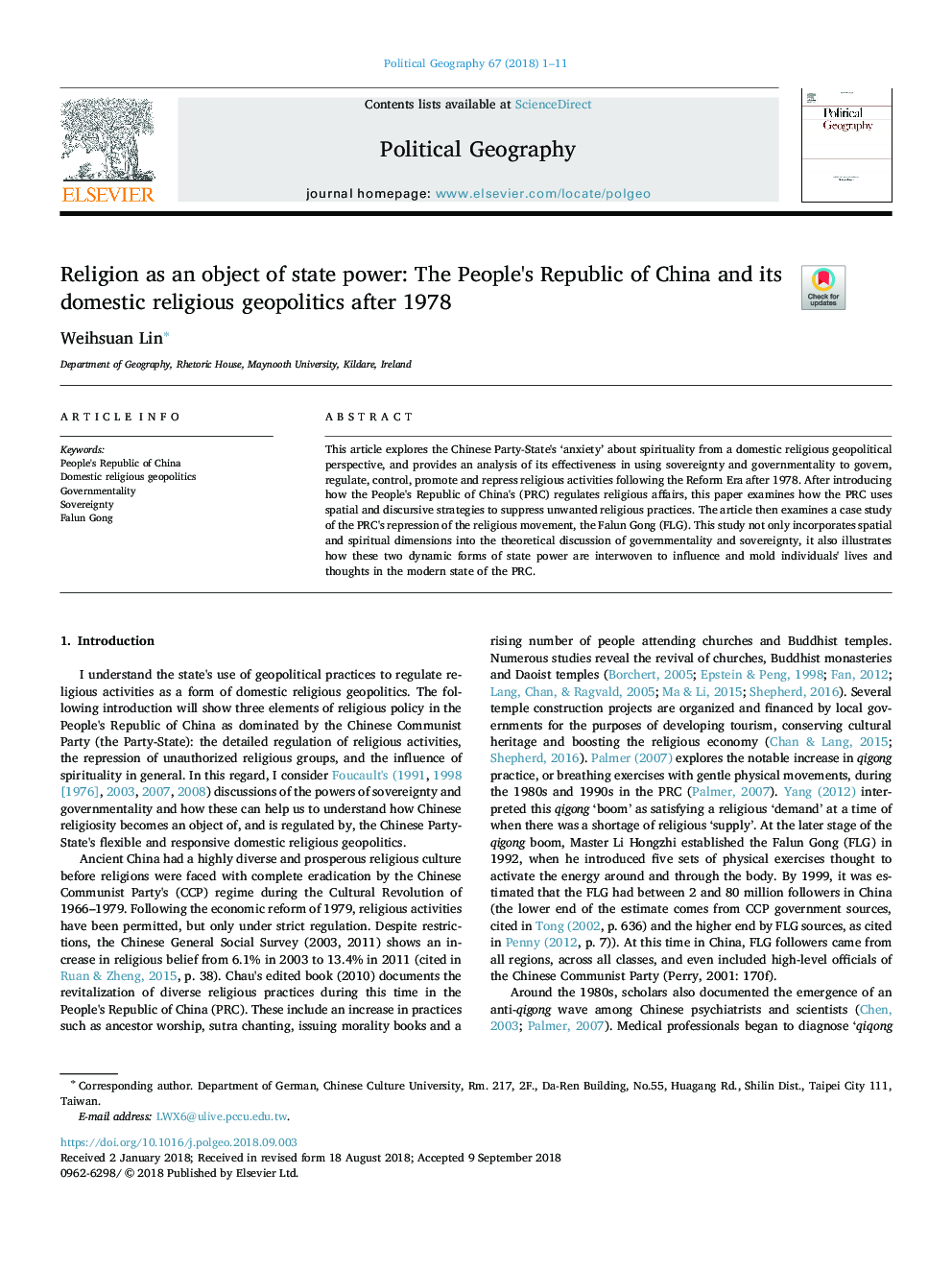| Article ID | Journal | Published Year | Pages | File Type |
|---|---|---|---|---|
| 10154117 | Political Geography | 2018 | 11 Pages |
Abstract
This article explores the Chinese Party-State's 'anxiety' about spirituality from a domestic religious geopolitical perspective, and provides an analysis of its effectiveness in using sovereignty and governmentality to govern, regulate, control, promote and repress religious activities following the Reform Era after 1978. After introducing how the People's Republic of China's (PRC) regulates religious affairs, this paper examines how the PRC uses spatial and discursive strategies to suppress unwanted religious practices. The article then examines a case study of the PRC's repression of the religious movement, the Falun Gong (FLG). This study not only incorporates spatial and spiritual dimensions into the theoretical discussion of governmentality and sovereignty, it also illustrates how these two dynamic forms of state power are interwoven to influence and mold individuals' lives and thoughts in the modern state of the PRC.
Related Topics
Social Sciences and Humanities
Arts and Humanities
History
Authors
Weihsuan Lin,
